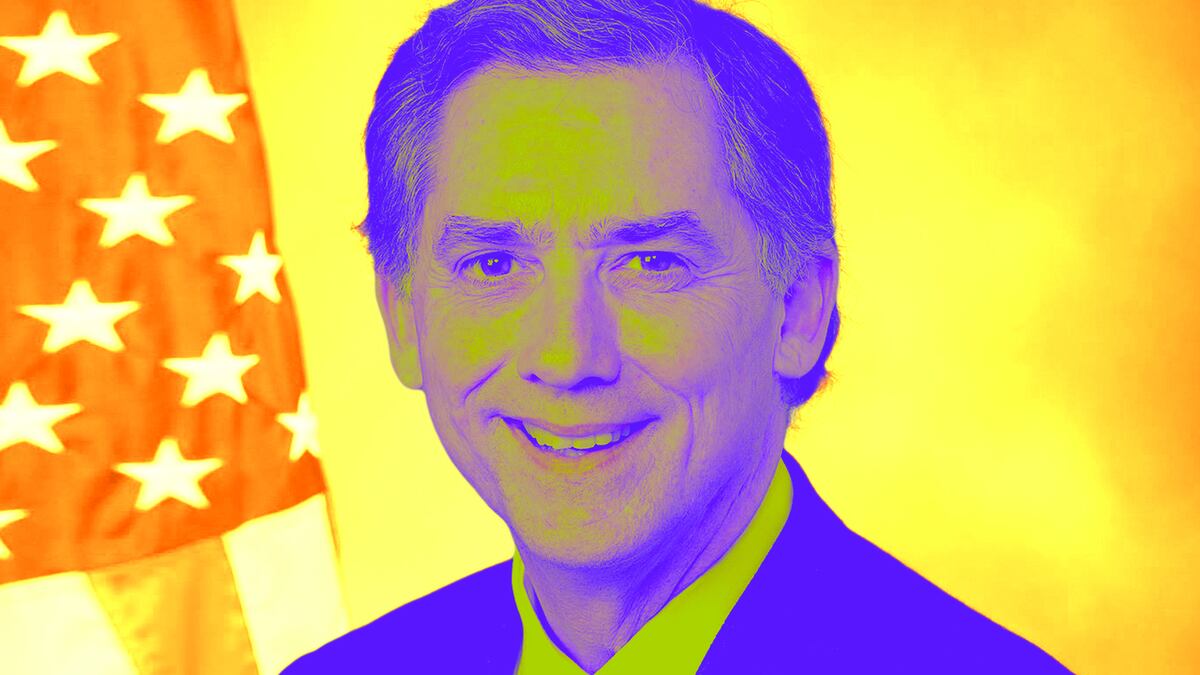A new body in Congress is challenging recent crypto enforcement actions and banking lockouts emanating from federal regulators.
The new Digital Assets Subcommittee within the House Financial Services Committee is scheduled to hold its first ever hearing on March 9, according to three sources familiar with the matter.
The hearing is titled “Coincidence or Coordinated? The Administration’s Attack on the Digital Asset Ecosystem.”
NOW READ: SEC’s Paxos fallout drives unexpected gains in centralised stablecoins
Though the subcommittee has not finalised a witness list, the hearing will weigh recent actions from financial regulators against crypto companies.
It is what crypto defenders are calling a crackdown. The committee’s Republicans seem to agree.
The SEC has become what Senator Tim Scott termed ‘the elephant in the room’
Most conspicuously, the blame seems to fall on the Securities and Exchange Commission, which has become what Senator Tim Scott termed “the elephant in the room” at a recent Banking Committee hearing.
The SEC under chair Gary Gensler has spearheaded the administration’s crypto approach, much to the chagrin of the industry. Recently the SEC has grown more aggressive.
In the past month the SEC has shut down crypto exchange Kraken’s staking offering and stablecoin issuer Paxos’ Binance stablecoin. It has also sued failed stablecoin Terra and founder Do Kwon, which have fewer defenders these days.
By arguing that the vast majority of the market is composed of tokens that are actually investment contracts – rendering their issuers, brokers and exchanges liable to a set of disclosures that crypto firms have bristled against.
NOW READ: US sends team to Brussels to study EU’s landmark crypto law amid SEC crackdown
Gensler has long sparked fear from the crypto industry with his overarching philosophy that crypto is more centralised than it advertises. But other agencies are catching up.
Recent scrutiny from banking regulators has stirred up rumours of the debanking of crypto companies. Industry lobbyists and advocates have taken to calling it “Operation Chokepoint 2.0,” in reference to a controversial Obama-era policy of pressuring banks into dropping clients operating in controversial but legal industries.
A joint statement from the Office of the Comptroller of the Currency, the Federal Reserve, and the Federal Deposit Insurance Corporation took aim at those concerns last week. The three regulators wrote that “Banking organisations are neither prohibited nor discouraged from providing banking services to customers of any specific class or type, as permitted by law or regulation.”
NOW READ: How the FTX collapse marks the start of a ‘migration’ to TradFi
However, many in Congress publicly applaud the firewalls between traditional finance and the crypto industry, crediting them with saving the broader market from contagion by quarantining the crypto collapse.
Republican representative Patrick McHenry took over as chair of the full committee in January, at the outset of a new congressional session following four years under Democrat Maxine Waters.
The GOP said crypto legislation has become what Ohio Republican Warren Davidson called ‘Gary Gensler’s selective enforcement’
During Waters’ time at the helm, the committee launched the Fintech Task Force and, last year, a Democratic working group on digital assets. Crypto also blew up as a financial policy priority during the same time – Facebook’s white paper for Libra came out just months into Waters tenure as chair, while FTX’s collapse closed it out.
Long, noted for his interest in crypto, McHenry announced the Digital Asset Subcommittee just weeks later, under the chairmanship of Republican representative French Hill.
NOW READ: Global regulators fire warning shot that they’re about to kneecap DeFi
Now armed with the committee’s megaphone, Republicans have begun echoing many of the crypto industry’s concerns about the SEC and other seemingly hostile.regulators. A January tweet from the committee’s GOP feed called for new legislation to replace the Howey test as a means of combating what Ohio Republican Warren Davidson called “Gary Gensler’s selective enforcement.”
Derived from a 1946 Supreme Court decision, the Howey test defines the boundaries of the term “investment contract,” which is largely the basis on which the SEC asserts jurisdiction over crypto markets. It has survived a number of legal challenges.
Midway through President Biden’s term, the most critical agencies have had their leadership confirmed – with the notable exception of the OCC – and have plenty of time remaining to act. When it comes to crypto, they are largely running the show. And with the two chambers of Congress split by party, legislation to change that seems like a pipe dream.


